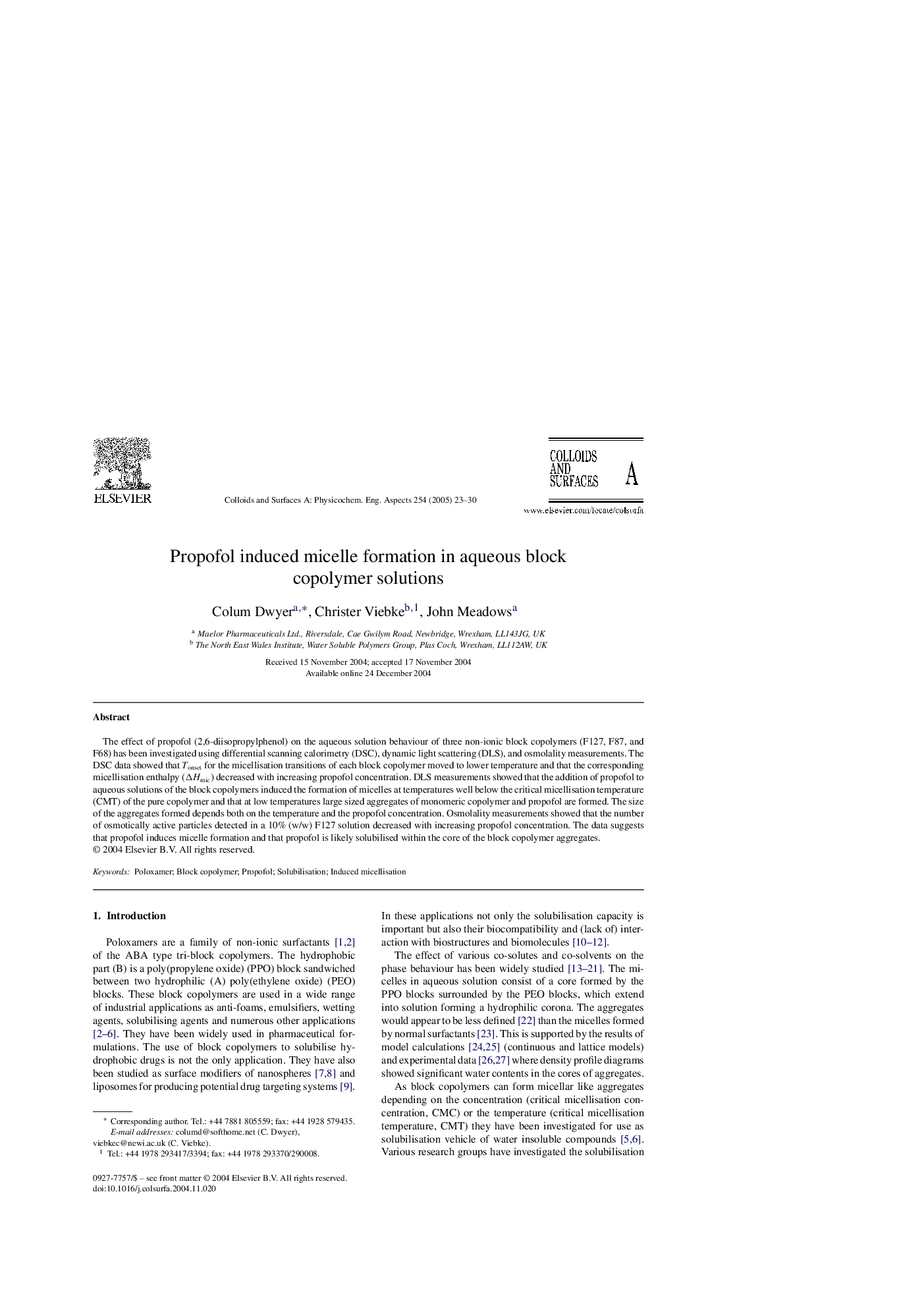| Article ID | Journal | Published Year | Pages | File Type |
|---|---|---|---|---|
| 9676081 | Colloids and Surfaces A: Physicochemical and Engineering Aspects | 2005 | 8 Pages |
Abstract
The effect of propofol (2,6-diisopropylphenol) on the aqueous solution behaviour of three non-ionic block copolymers (F127, F87, and F68) has been investigated using differential scanning calorimetry (DSC), dynamic light scattering (DLS), and osmolality measurements. The DSC data showed that Tonset for the micellisation transitions of each block copolymer moved to lower temperature and that the corresponding micellisation enthalpy (ÎHmic) decreased with increasing propofol concentration. DLS measurements showed that the addition of propofol to aqueous solutions of the block copolymers induced the formation of micelles at temperatures well below the critical micellisation temperature (CMT) of the pure copolymer and that at low temperatures large sized aggregates of monomeric copolymer and propofol are formed. The size of the aggregates formed depends both on the temperature and the propofol concentration. Osmolality measurements showed that the number of osmotically active particles detected in a 10% (w/w) F127 solution decreased with increasing propofol concentration. The data suggests that propofol induces micelle formation and that propofol is likely solubilised within the core of the block copolymer aggregates.
Related Topics
Physical Sciences and Engineering
Chemical Engineering
Colloid and Surface Chemistry
Authors
Colum Dwyer, Christer Viebke, John Meadows,
